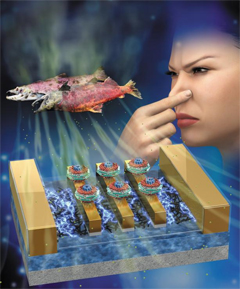- About
- Academics
-
Undergraduate Programs
- Civil and Environmental Engineering
- Architecture and Architectural Engineering
- Mechanical Engineering
- Industrial Engineering
- Energy Resources Engineering
- Nuclear Engineering
- Materials Science and Engineering
- Electrical and Computer Engineering
- Naval Architecture and Ocean Engineering
- Computer Science and Engineering
- Aerospace Engineering
- Chemical and Biological Engineering
-
Graduate Programs
- Civil and Environmental Engineering
- Architecture and Architectural Engineering
- Mechanical Engineering
- Industrial Engineering
- Energy Systems Engineering
- Materials Science and Engineering
- Electrical and Computer Engineering
- Naval Architecture and Ocean Engineering
- Computer Science and Engineering
- Chemical and Biological Engineering
- Aerospace Engineering
- Interdisciplinary Program in Technology, Management, Economics and Policy
- Interdisciplinary Program in Urban Design
- Interdisciplinary Program in Bioengineering
- Interdisciplinary Program in Artificial Intelligence
- Interdisciplinary Program in Intelligent Space and Aerospace Systems
- Chemical Convergence for Energy and Environment Major
- Multiscale Mechanics Design Major
- Hybrid Materials Major
- Double Major Program
- Open Programs
-
Undergraduate Programs
- Research
- Campus Life
- Communication
- Prospective Students
- International Office
Professor Taihyun Park of School of Chemical & Biological Engineering, developed a ‘bioelectronic nose’, which detect decay of plants and animal
-
Uploaded by
관리자
-
Upload Date
2018.03.02
-
Views
585
Professor Taihyun Park of School of Chemical & Biological Engineering, developed a ‘bioelectronic nose’, which detect decay of plants and animal

▲ Professor Taihyun Park of School of Chemical & Biological Engineering
A research team in Korea developed bioelectronic nose to detect the 'smell of death' that occurs when plants and animals decay.
A research team led by Professor Taihyun Park of School of Chemical & Biological Engineering, published a paper on bioelectronic nose in the ACS (American Chemical Society) Nano.
The bioelectronic nose can detect decomposition before the odor spreads by using a receptor protein that combines with the odorous substance that comes out as the food begins to spoil. This is expected to help identify spoiled food in the refrigerator or to search for victims who were killed in a catastrophic accident.
When the food is decayed, the smell spread out due to the substance called 'cadaverine', which was named after cadaver.
The research team extracted a gene that made a protein that binds to cadaverine in freshwater fish zebrafish, and inserted it into the E. coli gene. The researchers put the mass-produced cadaverine receptor protein into the artificial membrane. To develop the bioelectronics nose, they combined this with a carbon nanotube sensor.
In a follow-up study, the researchers demonstrated that the bioelectronic nose can detect cadaverine in the air.
Professor Park said, "Experiments with salmon and beef juice have revealed that electronic nose has detected extremely low concentration (1 part in 1 trillion) cadeverine in the liquids.“

▲ A illustration of bioelectronics nose